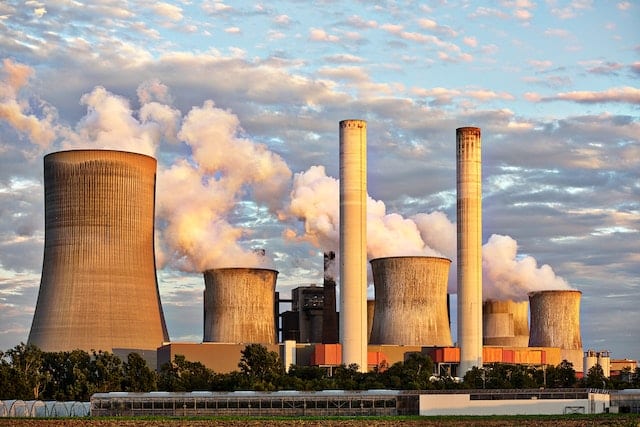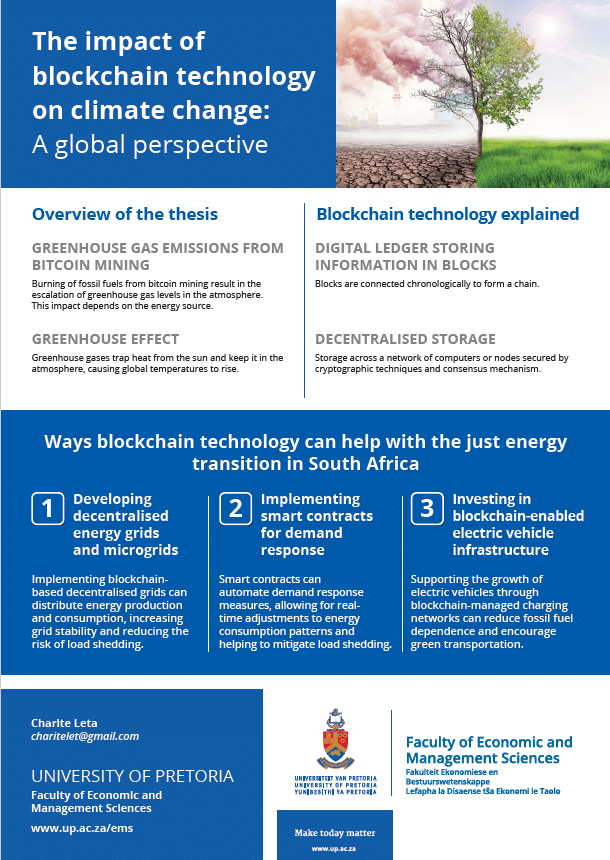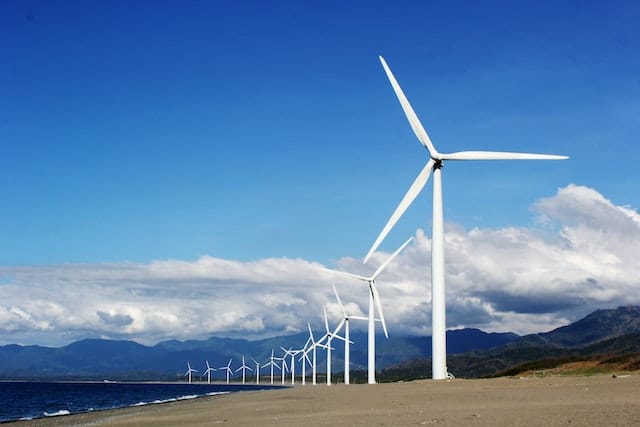Charite K. Leta, PhD Economics student, Energy and Environmental Economist
Hello, and thank you for visiting my website. I am Charite K. Leta, an energy and environmental economist interested in blockchain technology’s transformational potential. My studies in economics have prompted me to investigate the urgent connections between new technology, environmental concerns, and energy sustainability. At the University of Pretoria, I’m engrossed in my PhD economics study, which examines the significant influence of blockchain technology on climate change. My work aims to connect these fields as we stand at the intersection of technology development and the urgency of the environment by providing insights and solutions for a more technologically advanced and environmentally sustainable future.
PhD Economics Thesis
The Impact of Blockchain Technology on climate change: A global perspective
Blockchain is emerging in today’s quickly changing technology world as a game-changer for many industries, notably in tackling some of the most critical issues facing our planet. It is not merely the foundation of digital currencies.
My research in this area is focused on how blockchain technology impacts climate change. The relationship between blockchain decentralised ledger technology and global climate change has yet to be extensively studied. A deeper look may reveal significant synergies.
Transparency and trust are one of the major obstacles to addressing climate change. Blockchain can offer transparent and traceable carbon credits and emissions records, ensuring that organisations remain responsible thanks to its immutable record-keeping.
Blockchain technology has the potential to completely transform the way that energy is produced, traded, and consumed. A more decentralised and sustainable energy environment is promoted by facilitating peer-to-peer energy trading, which allows people to create and sell renewable energy.
My PhD Economics thesis explores these intersections, looking at the impact of blockchain technology on climate change, the viability, difficulties, and potential future directions of using blockchain technologies to tackle climate change.
Blockchain and climate change convergence provide a light of hope and creativity as we struggle with the conflicting urgencies of environmental preservation and technological advancement.
Would you be interested in collaborating on a project?
Please send me an email today.
Overview of Specialisations
Energy Economics
Comprehending the complex economic dynamics as the world’s energy needs rise is crucial. Analysis of energy markets, pricing trends, and the financial effects of renewable and non-renewable energy sources are areas in which I specialise as an energy economist. In this dynamic industry, I want to build a bridge between economic viability, policy, and innovation to promote sustainable development. As part of my PhD economics studies, I assess the impact of blockchain technology on climate change using the CBECI index for Bitcoin developed by CCAF.

Environmental Economics
Environmental issues and economic activity are inextricably intertwined. As an environmental economist, I attempt to understand these intersections, weighing the advantages and disadvantages of environmental regulations, and looking into market-based solutions to environmental problems are all my work in environmental economics. Economics may help inform sustainable decision-making as we deal with growing environmental issues.
Blockchain Technology in the Energy Sector
Beyond its well-known connection to cryptocurrencies, blockchain has revolutionary possibilities for the energy industry. My area of expertise is how this decentralised technology may revolutionise the way energy is traded, including renewable energy sources, and provide open-source answers for a more sustainable energy environment.




